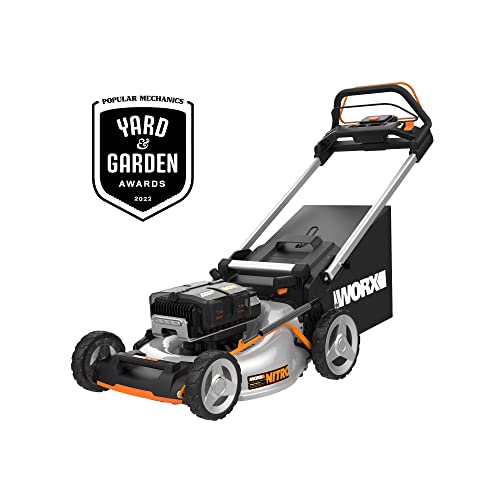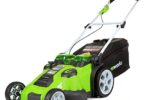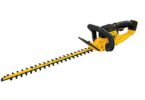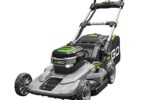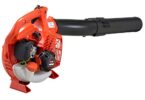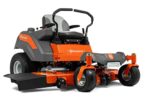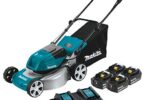Overview
Self-propelled lawn mowers are suitable for the majority of residential lawns and are simpler to handle than push mowers, which are pushed by your own movement. They work well for navigating rocky and hilly terrain, but you'll definitely pass out if you try to use one on your multi-acre property because they do take some work to operate. These are the best self-propelled lawn mowers of 2022; we discovered one for every type of buyer and every budget.
Types of Product
Type 1:BLACK+DECKER 3-in-1 Gas Self Propelled Mower
Type 2:EGO POWER+ LM2135SP
Type 3: Troy-Bilt TB210
In-Depth Reviews for The Self Propelled Lawnmower
1. Toro 21466
Specification
-
Voltage: 60
-
Deck size: 22 in.
-
Functions: Mulch, bag, side discharge
-
Drive: Rear
-
Cut area per charge: 13,524 sq ft
-
Non-lawn surfaces: Fair
-
Uphill mowing: Good
Reason to buy
-
Efficient
-
Excellent airflow for mulching and bagging
The air vent at the front of the mower deck appears to enhance bagging and mulching performance, to start. Its design, known by Toro as Vortex technology, boosts airflow similarly to a car's hood scoop. According to the manufacturer, this promotes airflow into the bag as well as straighter grass standing under the mower and longer suspension of the clippings for more thorough mulching. Although we are unable to confirm this, our findings do seem to support the validity of the design. Next, the revised "Atomic" blade configuration from the company seems to support air flow and clipping motion. A single battery can power a sizable cut area thanks to the three-phase, 60-volt motor remarkable efficiency.
2. Ryobi RY401150US
Specification
-
Voltage: 40
-
Deck size: 21 in.
-
Functions: Mulch, bag, side discharge
-
Drive: Rear
-
Cut area per charge: 15,292 sq ft
-
Non-lawn surfaces: Fair
-
Uphill mowing: Good
Reason to buy
-
Made in the States
-
Low maintenance
This is the top-of-the-line mower from Ryobi, and we wish we see more products built in America. Ryobi RY401150US two (6-Ah) batteries, which together have a 12-Ah capacity, deliver a significant cut area, and its X-shaped blade leaves a spotless surface in its wake. We did not time our cut, but Ryobi predicts that the design should have a run time of 70 minutes. Its rear-wheel-drive and moderately aggressive tread pattern offer good performance for climbing hills and cutting through sidehills, and its bagging on all terrains (flat, sidehill, and uphill) is also admirable.
3. DR Power SP30
Specification
-
Engine size: 223 cc
-
Deck size: 30 in.
-
Functions: Mulch, side discharge bag
-
Drive: Rear
-
Non-lawn surfaces: Very good
-
Uphill mowing: Very good
Reason to buy
-
Productive
-
Well built
This mower from DR Power was the most enjoyable to use. Due to the lack of controls, it is easy to use. Turn the key, move the driving lever (up to a very rapid pace), and move the blade engagement lever to start cutting. All there is to it is that. For such a large mower, it is surprisingly nimble thanks to its relatively low weight and well-balanced shape. DR Power has excellent bagging performance and leaves a clean cut. We ascribe that to the airflow from the deck into the bag, which is so effective that when you remove the bag, you discover a densely packed hay bale rather than a loose bunch of grass clippings.
4. Craftsman M215
Specification
-
Engine size: 159 cc
-
Deck size: 21 in.
-
Functions: Mulch, side discharge, bag
-
Drive: Front
Reason to buy
-
Maneuverable
Because this Craftsman mower resembles so many other models we've evaluated from the brand and has consistently performed well in our tests, we can highly recommend it. With this American-made mower, you'll get the ideal balance of power and maneuverability. It is very agile because of its front-drive. However, it's crucial to remember that front-drive mowers do lose some grip when moving uphill, especially when the grass bag is full. You'll be fine, though, if your slope is less than 20 degrees and you're not bagging uphill. You can manage long grass using the side discharge as well.
FAQs
1. Is it worth it to buy a self-propelled lawnmower?
You'll save time and effort by using self-propelled mowers. With a self-propelled mower, you can cut through thick grass without exerting extra effort because the mower advances mechanically through awkward spots in your yard.
2. How many horsepowers should a self-propelled lawnmower have?
Walk-Behind and Push Mowers
If you have up to 1/2 acre to mow, a self-propelled model would be more suited, although these models require more horsepower to cope with the heavier effort. These so-called walk-behind lawnmowers have engines that range in horsepower from 5.0 to 7.0 on average.
3. What is the lifespan of a self-propelled lawn mower?
Depending on how frequently it is used, a self-propelled mower should last eight years or longer. (Most manufacturers assign a specific amount of service hours to their lawn mowers.) The lifespan of a self-propelled mower compared to a traditional push model is not noticeably different.
Like many other businesses, lawn care will continue to advance in terms of convenience and usability. Because of this, self-propelled lawn mowers are now available, literally relieving you of the burden of mowing (and your arms). This is 7 best Self Propelled Lawnmower
We always want to listen to customers' questions and suggestions to improve the website. So we are always here to assist you 24/7.

